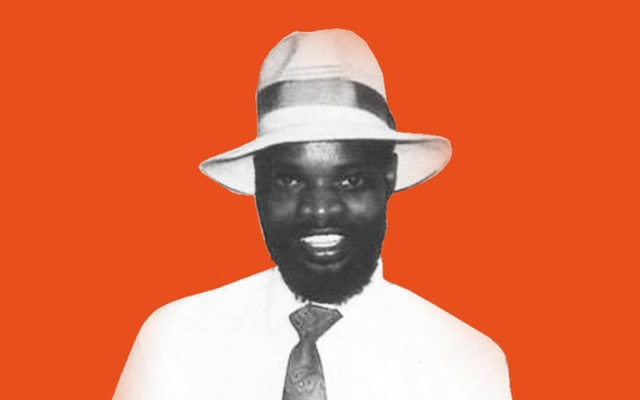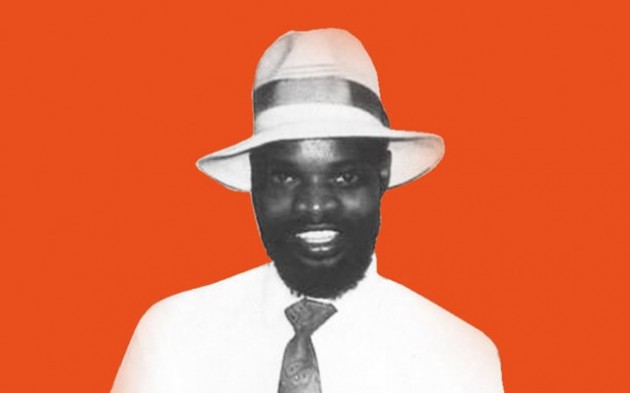The lost fantasies of the love letter

 Sekai Nzenza On Wednesday
Sekai Nzenza On Wednesday
THE elders used to say, a man who is incapable of lying will never marry (Zirume risinganyepi hariwani). In those days, the elders meant that a young man looking for a wife must learn the art of flattery and create fantasies of romance.
He must take the girl along with him in his dreams and fantasies.
The boy must also learn how to recite the totem praise poetry of the girl’s ancestry.
In his praises he would compare her to everything naturally beautiful like the moon, the stars, the flowers, the hills, the butterflies, pumpkins, ripe smooth cucumbers and beautiful wild fruits.
He would sing: “Tsvarakadenga wangu, kufamba kunge kukavira nyimo. Venheteko, vatakuri vemanhanga.”
Many of these words could not be translated because there was no equivalent in English to give them any justice.
Back in the village, they started writing love letters in my father’s generation, sometime around the 1940s and 50s and also before that.
They were the generation that passed Standard Six and became teachers or clerks in Government offices. Others of that era went to Fort Hare University in South Africa or Makerere in Uganda.
They left their lovers in the village, promising to return and marry them.
In our village, there was the story of Miss Leah Rutambo, a schoolteacher at St Clara’s Primary school, who waited for her lover to return from Fort Hare.
She waited for many years and refused to fall in love with all the suitors.
It took weeks or even months to get the letter to St Clara’s.
Then the letters arrived at Muzorori & Sons store with a South African stamp.
When Miss Leah received her letters, she treasured them, kissed them and read them over and over again.
The letters kept on coming for some years. Then they stopped coming and Miss Leah left St Clara’s school.
She moved to Salisbury, hoping to cross the border into South Africa and look for her lover.
They said the Rhodesian government could not give her a passport. Then one day, Miss Leah Rutambo’s lover turned up with a big, beautiful and very light skinned Zulu or Xhosa wife.
Miss Leah was heartbroken.
She burnt all the letters that she had received from her lover over the years.
Long distance love was very common in those pre-independence days.
Young men left the village to look for work or to study in faraway places.
There were envelopes with stamps that carried a photo of the Queen. The envelope had “Royal Mail” written on them.
The letter boxes at Muzorori & Sons always sat in the corner and we rummaged through and examined each envelope.
The letters came from many countries. Even from America.
Within the village homestead, it was common knowledge that my oldest sister had a boyfriend who went to London and my aunt Agnes’ boyfriend had mysteriously left the University of Rhodesia.
There were no letters from him for a long time.
Then his letters started arriving from Zambia speaking only of love and how he missed her and the village.
He said he was reading to become a lawyer so that one day he would come back and help Africans to defend themselves in court when they were accused of stealing. He would also make divorce easier between couples.
But village gossip said he moved to Zambia where he was part of the liberation to free Zimbabwe from colonial rule.
But we were not allowed to talk about freedom, the war, liberation struggles or anything like that.
They said talking loosely about such matters would definitely end someone, an adult, in prison.
We knew that the authorities read and listened to everything.
They had spies. Love letters from Zambia or anywhere arriving at Muzorori & Sons were already opened by the authorities.
It was safer that lovers only write about love and how they would live happily ever after. No politics.
When we left the village for boarding school, we fell in love and we learnt how to put all our fantasies on paper. Letters were very poetic.
“Baby, when I see you, I want to carry you in my arms and fly away with the clouds.” Such melodramatic fantasies were complemented by great romantic songs with meaning.
Years later, we now live in the cities and in the Diaspora.
In our large extended family, my nephew Fungai in Australia has created a family WhatApp network to help us connect to everyone.
So, as part of our family chats, my cousin Simba who lives in Canada posted a copy of a romantic love letter on the family WhatApp page over the weekend.
Simba took us back to the past era of romantic love letters and poetry.
In the love letter, which I am pretty sure he made up or he put together words from other people suffering from the nostalgia of the lost love letter like some of us.
I read this letter to my cousin Piri and niece Shamiso while we basked in the glowing golden sunset back in the village last Sunday.
Here is the message my cousin Simba sent to us all. He started it like this: Kanguva kaye muchikukayeuka here?
Do you still remember those sweet old days?
Remember receiving an envelope with some words written on its top end corner?
Opposite the envelope was a Rhodesian stamp of a wild flower or some special plant. The letter had these words:
“Kiss this envelope 1 000 times before you open.
Tea needs sugar
Bees need honey
And I need you
To Amicable, my Tropical Rainforest.
First and fore most, I want to give my EVERSHARP 15M a big hug for its opportunity to vomit on this piece of paper.
Having got this glorious opportunity, I would like to say how are you chewing the flames of master life?
At this juncture, I have briefly stopped reading my books just to tell you how much you make my heart jump Mount Everest. I love you more than 100 percent sweetheart.
You are the chocolate that has chocolated all the chocolates on the world Babe. I love you like the clouds love the sky Babe.
Babe, I didn’t know that angels could fly so low. You are my angel. You are so beautiful like the Pythagoras theorem, (Me squared times You squared = Love squared).
When I saw you, my heart ran to the sun and came back. Babe, was your father a carpenter, because you were made so beautiful? Our love is so good like the electric train that produces no smoke. You were created on God’s off day when he had time and energy from heated atoms. You are the sherbet of my heart.
Anyway I really have to pen off now. I wish you all the best in your life and don’t forget that I love you so much.
Special dedication songs:
1. Furuwa Furuwa
2. Brenda Fassie – Wedding Day
3. Kanda Bongo Man – Hinde moni
4.Leonard Dembo – Chitekete
Your everloving
Mr Right
Piri and Shamiso sat there laughing and I think I saw some wetness in Piri’s eyes.
Maybe she felt like crying for love.
I searched for the song called Furuwa from my iPhone. It was written and sung by Tairosi Tendaupenyu in 1984 when he was living in a part of Harare called Egypt. While Piri danced alone in joy or misery, I sat there, lost in the fantasies of the words in the song:
“Ndakarota ndiinewe (I dreamt about you)
Takagara pamusoro soro pe mvura (We were sitting on top of the waves)
Pamusoroso penyanza mudiwa (Above the sea my love)
Masaisai egungwa achitisesesedza (The waves were gently carrying us along)
Mawungira emvura uri mumhanzi (The sound of the waves like music to our ears)
Hope dzangu Furuwa mwanawe (This is the dream I had my Furuwa)
Ihope dzakanaka (This dream is a good one)
Muchato wedu uchafadza (Our wedding will be a most pleasing one)
Ahe Fururwa, ahe Furuwa.
Unozivisa vaberiki vako. (Please tell your parents about our good news)
Ini ndichizivisa vaberiki vanguwo (I shall tell mine as well)
Nehope dzakanaka (About this good dream)
The singer Tairosi was carried away in the fantasy of romance. He probably never saw the sea.
He simply wrote and created a beautiful love song that still places us romantically on top of big waves. Into the fantasy world of love.
When the song ended, we sat there dreaming of past love letters.
Then the moment was interrupted by a text message that entered Shamiso’s phone from Philemon, her estranged husband and lover. Philemon wrote: “Howz babes? I mis yu.”
Tairosi’s song Furuwa has remained. But love letters full of fantasies continue to disappear and are destroyed daily by deliberate bad grammar. If only that era of poetic love written on paper, not on the phone, could come back. Why not dream of riding on waves of love even though you have never seen the sea?
·Dr Sekai Nzenza is an independent writer and cultural critic.









Comments